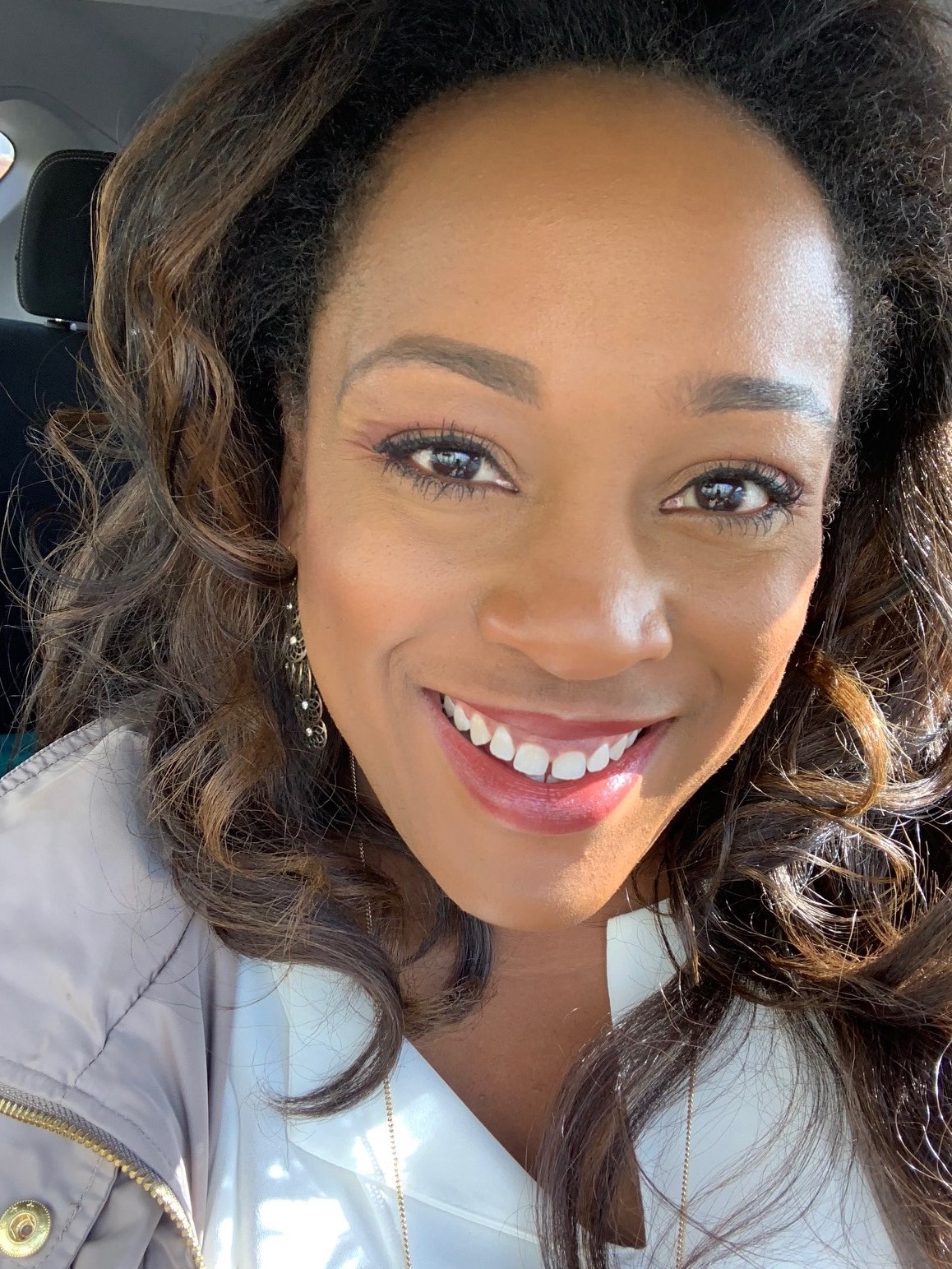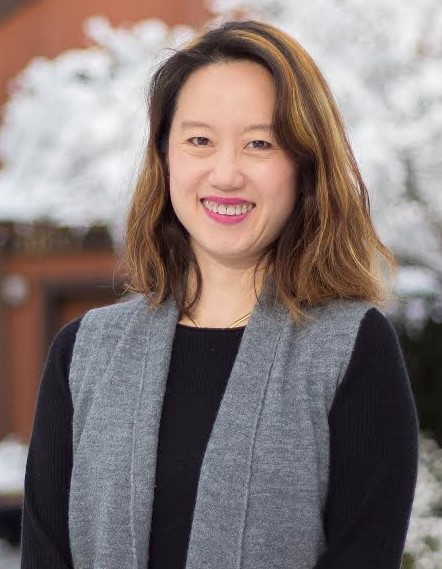To learn more about the types of training and consultation that BTECH offers, visit our Training Catalog here.
Interested in a training that is sold out? Please join our Waiting List so we can contact you as we schedule future events.

- This event has passed.
Dialectical Behavior Therapy Intensive Training™ (SOLD OUT)
Level 3
Seattle, WA
Part 1: December 9-13, 2019
Part 2: June 22-26, 2020
Trainer: Tony DuBose, PsyD and Presenters: Vibh Forsythe Cox, PhD & Debbie Leung, Ph.D., R.Psych
*Individual therapists who are members of an intensively trained DBT team, but have not completed Intensive training themselves, may attend Part 1 as a Foundational participant.
Training Description
The Dialectical Behavior Therapy Intensive Training™ is a ten-day course designed for those who have begun learning DBT® methods from self-guided study of the treatment manuals and introductory workshops. This training is intended for teams that are invested in learning DBT to a high standard in order to better implement the treatment in their settings.
As DBT is a treatment that requires an ongoing consultation team, the Intensive Training is designed for treatment teams, not individual practitioners intending to practice alone.
A DBT team (minimum of 3*, maximum of 8) is a group of mental health professionals who meets at least weekly to assist each other in applying DBT in their practice setting. With the intent to provide the highest quality training experience, it is our goal to have a maximum of eight teams for each Dialectical Behavior Therapy Intensive Training™. Teams should discuss and clarify their level of commitment prior to completing their application as course enrollment is limited, and there is a competitive demand for Intensive Training.
Training is conducted in two five-day sessions of instruction divided by six to nine months of home study. In Part 1, lectures, videotapes, and small group exercises are used to teach DBT theory and strategies in-depth. Between the first and second sessions, participants consolidate and apply what they have learned with the help of practice assignments. Between sessions, teams design and begin to implement their own DBT programs or to integrate DBT into an ongoing treatment setting. In Part 2, each team presents their work and receives expert consultation on specific cases and on their program, including protocols for specific treatment problems and adaptations of DBT.
The DBT Intensive Training involves rigorous preparation, training, and homework. Part 1 and Part 2 are both five full days of training. The course is designed to model basic elements of the treatment in an experiential way and to foster team development. Just as DBT requires clients to make a full commitment to treatment and to attend all sessions, DBT training requires Intensive participants to attend the entire training, do their best to learn the material, and participate in a willing, committed manner.
Training Objectives
Part 1:
- Participate in a DBT Consultation Team.
- Demonstrate Consultation Team strategies used in DBT.
- List the modes, the functions, and the typical treatment agreements made in DBT.
- Implement the structure, goals, and stages of DBT.
- Teach the four DBT® skills modules (Core Mindfulness, Interpersonal Effectiveness, Emotion Regulation, and Distress Tolerance).
- Explain the diagnosis of Biosocial Model of Borderline Personality Disorder (BPD) and other severe disorders in all required treatment contexts.
- Create DBT treatment plans for clients using targeting procedures.
- Explain the dialectical nature of DBT.
- Demonstrate how dialectics are used in DBT.
- Conduct Cue Exposure and Response Prevention.
- List the steps in Problem-Solving.
- Conduct complete Behavioral Chain Analyses and solution analyses.
- Implement the Cognitive-Behavioral strategies in DBT.
- Identify the levels of validation and the contexts in which they apply.
- Demonstrate the use of validation to balance the change strategies in treatment.
- Demonstrate the different communication strategies of DBT.
- Implement the DBT case management strategies.
- Implement telephone coaching and other generalization strategies of DBT.
- Apply suicide crisis protocols of DBT.
- Discuss the DBT research for different populations.
Part 2:
- Demonstrate comprehension of important concepts in DBT.
- Demonstrate the ability to apply important concepts in DBT.
- Demonstrate the ability to appropriately apply DBT strategies in my own cases and appropriately evaluate the use of DBT strategies in others’ cases.
- Demonstrate use of DBT commitment strategies.
- Identify in-session dysfunctional behaviors and use DBT strategies to treat them.
- Use DBT strategies to better manage skills training problems.
- Identify team problems and use DBT strategies to resolve them.
- Design DBT service programs, appropriately implementing and modifying DBT protocols for my particular setting and patient population.
- Formulate plans to evaluate my program/services.
- Discuss the take-home exam assigned in Part 1 and consequently better understand important concepts in DBT.
- Discuss homework assignments involving the application of the treatment and consequently better understand how to apply the treatment.
- Understand and apply the treatment after my team’s program presentation.
- Use techniques for strengthening and using the DBT consultation team.
- Practice the techniques of DBT by role-playing, as coached by the instructors and be better able to describe and apply treatment strategies.
- Teach mindfulness skills, interpersonal skills, and emotion regulation skills as detailed in the DBT skills training manual.
- View and discuss videotaped segments of DBT as modeled by expert therapists and be better able to describe and apply treatment strategies.
- Understand and apply the treatment after my team’s case presentation.
Schedule
| General Schedule for Parts 1 & 2: | |||
| 8:00 | – | 8:30 | Registration, Sign-In |
| 8:30 | – | 9:30 | Mindfulness |
| 9:30 | – | 10:15 | Morning Session 1 |
| 10:30 | – | 12:00 | Morning Session 2 |
| 1:00 | – | 2:15 | Afternoon Session 1 |
| 2:30 | – | 3:45 | Afternoon Session 2 |
| 4:00 | – | 4:50 | Closing Session; Assign Homework |
| 4:50 | – | 5:00 | Q & A/ Evaluation, Sign-Out |
CE NOTE: Behavioral Tech calculates the continuing education credits for this training by the start time and end time. 100 percent attendance is required, as is signing IN and OUT each morning and afternoon, to receive CE credits. Partial credits cannot be issued.
Trainers
Tony DuBose, PsyD

 Seattle, WA
Anthony P. DuBose, PsyD, Vice-president for Institute Services at Behavioral Tech Institute, the organization founded by DBT Treatment Developer, Dr. Marsha Linehan. Dr. DuBose has led a team of some of the world's foremost experts in Dialectical Behavior Therapy (DBT) since 2011. He has served a key role in the development and refinement of several large-scale DBT training models that have been translated into multiple languages. He has trained and consulted with health care providers world-wide regarding the treatment of borderline personality disorder, substance use disorders, and suicidal and self-injurious behaviors in adults and adolescents. He has been involved in large-scale systemwide DBT implementation projects in multiple countries and several US states. He is a member of the International Dissemination and the Training Committees of the World Dialectical Behavior Therapy Association (WDBTA), formed in 2021, and served on the WDBTA initial Board of Directors as its Treasurer. He has been licensed as a psychologist in the State of Washington since 1998 and is certified by the DBT - Linehan Board of Certification (DBT-LBC). He lives in Seattle, WA in the United States.
Dr. DuBose received a doctoral degree in clinical psychology from Pacific University of Oregon. He completed his predoctoral psychology internship at Western State Hospital in Lakewood, WA, and his residency requirements for psychology licensure as a postdoctoral fellow in clinical child psychology through the University of Washington's Department of Psychiatry and Behavioral Sciences. Before training as a psychologist, he completed a Master of Science degree in counseling from Loyola University of New Orleans and worked as a family therapist upon completion of that degree. His interest in suicidal and self-injurious behaviors developed when working with adolescents at high risk for suicide at the Child Study and Treatment Center, the state psychiatric hospital for children in Washington, where he served as director of the older adolescent program from 1997 to 2001. He is a Founding Member, and served as the first President & CEO, of the Evidence Based Treatment Centers of Seattle, PLLC. He held appointments on the clinical faculty in the University of Washington’s Department of Psychiatry and Behavioral Sciences and Department of Psychology from 1998 - 2012. He collaborated with Marsha Linehan, Ph.D., ABPP, and other researchers on the study of DBT, particularly related to its dissemination and implementation.
Seattle, WA
Anthony P. DuBose, PsyD, Vice-president for Institute Services at Behavioral Tech Institute, the organization founded by DBT Treatment Developer, Dr. Marsha Linehan. Dr. DuBose has led a team of some of the world's foremost experts in Dialectical Behavior Therapy (DBT) since 2011. He has served a key role in the development and refinement of several large-scale DBT training models that have been translated into multiple languages. He has trained and consulted with health care providers world-wide regarding the treatment of borderline personality disorder, substance use disorders, and suicidal and self-injurious behaviors in adults and adolescents. He has been involved in large-scale systemwide DBT implementation projects in multiple countries and several US states. He is a member of the International Dissemination and the Training Committees of the World Dialectical Behavior Therapy Association (WDBTA), formed in 2021, and served on the WDBTA initial Board of Directors as its Treasurer. He has been licensed as a psychologist in the State of Washington since 1998 and is certified by the DBT - Linehan Board of Certification (DBT-LBC). He lives in Seattle, WA in the United States.
Dr. DuBose received a doctoral degree in clinical psychology from Pacific University of Oregon. He completed his predoctoral psychology internship at Western State Hospital in Lakewood, WA, and his residency requirements for psychology licensure as a postdoctoral fellow in clinical child psychology through the University of Washington's Department of Psychiatry and Behavioral Sciences. Before training as a psychologist, he completed a Master of Science degree in counseling from Loyola University of New Orleans and worked as a family therapist upon completion of that degree. His interest in suicidal and self-injurious behaviors developed when working with adolescents at high risk for suicide at the Child Study and Treatment Center, the state psychiatric hospital for children in Washington, where he served as director of the older adolescent program from 1997 to 2001. He is a Founding Member, and served as the first President & CEO, of the Evidence Based Treatment Centers of Seattle, PLLC. He held appointments on the clinical faculty in the University of Washington’s Department of Psychiatry and Behavioral Sciences and Department of Psychology from 1998 - 2012. He collaborated with Marsha Linehan, Ph.D., ABPP, and other researchers on the study of DBT, particularly related to its dissemination and implementation.
Additional Faculty & Presenters
Vibh Forsythe Cox, PhD

 Seattle, WA (United States)
Vibh Forsythe Cox, PhD, is a Training and Development specialist for Behavioral Tech, LLC (BTECH). She is part of the team that creates content for BTECH’s training offerings. Dr. Forsythe Cox is also a Trainer and consultant for Behavioral Tech. In that role, she provides consultation for DBT teams, specializing in newly forming DBT teams. Dr. Forsythe Cox is a licensed Psychologist in Washington state and works as a therapist at Cadence Child and Adolescent Therapy, a DBT-Linehan Board certified DBT program in Kirkland, Washington. There, she provides DBT and other evidence-based treatments for teens and adults. Dr. Forsythe Cox is also the training advisor for the Post-Doctoral Fellowship program at Cadence and provides group and individual supervision to mental health professionals preparing for licensure. Dr. Forsythe Cox has experience providing DBT in a variety of settings, including university-based research, inpatient and outpatient hospitals, forensics, and private practice settings. She is a Clinical Instructor in the Department of Psychology at the University of Washington, where she has provided individual and group supervision to doctoral students in the Behavioral Research and Therapy Clinics (BRTC).
Seattle, WA (United States)
Vibh Forsythe Cox, PhD, is a Training and Development specialist for Behavioral Tech, LLC (BTECH). She is part of the team that creates content for BTECH’s training offerings. Dr. Forsythe Cox is also a Trainer and consultant for Behavioral Tech. In that role, she provides consultation for DBT teams, specializing in newly forming DBT teams. Dr. Forsythe Cox is a licensed Psychologist in Washington state and works as a therapist at Cadence Child and Adolescent Therapy, a DBT-Linehan Board certified DBT program in Kirkland, Washington. There, she provides DBT and other evidence-based treatments for teens and adults. Dr. Forsythe Cox is also the training advisor for the Post-Doctoral Fellowship program at Cadence and provides group and individual supervision to mental health professionals preparing for licensure. Dr. Forsythe Cox has experience providing DBT in a variety of settings, including university-based research, inpatient and outpatient hospitals, forensics, and private practice settings. She is a Clinical Instructor in the Department of Psychology at the University of Washington, where she has provided individual and group supervision to doctoral students in the Behavioral Research and Therapy Clinics (BRTC).
Debbie Leung, PhD, RPsych

 Vancouver, BC (Canada) Debbie Leung, Ph.D., R.Psych received her doctorate degree in Clinical Psychology from Stony Brook University (American Psychological Association-accredited) in New York in 2005 after completing her internship training at the Centre for Addiction and Mental Health (Child, Youth and Family Program) in Toronto. In 2009, Dr. Leung completed a 2-year post-doctoral fellowship with Dr. Marsha Linehan at the University of Washington, where she received intensive training and supervision in DBT and in research on Borderline Personality Disorder (BPD). Dr. Leung has worked in various clinical settings including outpatient pediatric, inpatient adolescent psychiatry, adult mental health and substance use outpatient services, and community private practice. She is a registered psychologist in British Columbia, Canada and the director and founder of Wise Mind Centre, a community-based group practice that offers evidence-based psychological services such as CBT and comprehensive DBT. She also serves as a consultant of the DBT-informed program at Vancouver General Hospital.
Dr. Leung is a clinical associate of Simon Fraser University and provides supervision to graduate trainees in clinical psychology programs at University of British Columbia, Simon Fraser University, and Adler University. In addition to clinical services, Dr. Leung has taught graduate level courses in clinical assessment at the University of British Columbia and undergraduate courses at Kwantlen University. Further, she has presented her research work in parenting and BPD in international conferences and published her work in these areas in peer-reviewed journals. Moreover, she has provided clinical consultations and workshops in DBT and BPD-related topics locally and internationally to other mental health clinicians.
Vancouver, BC (Canada) Debbie Leung, Ph.D., R.Psych received her doctorate degree in Clinical Psychology from Stony Brook University (American Psychological Association-accredited) in New York in 2005 after completing her internship training at the Centre for Addiction and Mental Health (Child, Youth and Family Program) in Toronto. In 2009, Dr. Leung completed a 2-year post-doctoral fellowship with Dr. Marsha Linehan at the University of Washington, where she received intensive training and supervision in DBT and in research on Borderline Personality Disorder (BPD). Dr. Leung has worked in various clinical settings including outpatient pediatric, inpatient adolescent psychiatry, adult mental health and substance use outpatient services, and community private practice. She is a registered psychologist in British Columbia, Canada and the director and founder of Wise Mind Centre, a community-based group practice that offers evidence-based psychological services such as CBT and comprehensive DBT. She also serves as a consultant of the DBT-informed program at Vancouver General Hospital.
Dr. Leung is a clinical associate of Simon Fraser University and provides supervision to graduate trainees in clinical psychology programs at University of British Columbia, Simon Fraser University, and Adler University. In addition to clinical services, Dr. Leung has taught graduate level courses in clinical assessment at the University of British Columbia and undergraduate courses at Kwantlen University. Further, she has presented her research work in parenting and BPD in international conferences and published her work in these areas in peer-reviewed journals. Moreover, she has provided clinical consultations and workshops in DBT and BPD-related topics locally and internationally to other mental health clinicians.
Prerequisites
All team members must read the following prior to Part 1:
- Linehan, M.M. (2015). DBT® Skills Training Manual: Second Edition. New York: Guilford Press.
- Linehan, M.M. (2015). DBT® Skills Training Handouts and Worksheets: Second Edition. New York: Guilford Press.
- Linehan, M.M. (1993). Cognitive-Behavioral Treatment of Borderline Personality Disorder. New York, NY: Guilford Press.
The DBT Intensive Training is designed to help attendees build an effective treatment program. DBT is a treatment that requires an ongoing consultation team. Therefore, the training is only open to teams consisting of three to eight people. Individuals and teams of less than three will not be accepted. Each team member is expected to attend the entire ten days of training.
Attend
Tuition
Tuition per person $2,750 per person*.
| Number of Team Members | Team Tuition |
| Team of 3 or 4* | $ 11,000* |
| Team of 5 | $ 13,750 |
| Team of 6 | $ 16,500 |
| Team of 7 | $ 19,250 |
| Team of 8 | $ 22,000 |
* This training is designed for DBT teams. You must attend with a team of three to eight people. We require a minimum total payment of 11,000 USD per team.
Submit Your Application by November 15
- Team Application — one per team: Download Team Application
- Individual Application — one for each team member: Download Individual Application
You may pay for the application fee (to indicate your interest) by adding an App Fee ticket to your cart and completing the checkout process. Please note that we will cancel your application fee if we do not receive your application form(s) within 7 days of app-fee payment.
Please have one of your team members submit all completed team and individual applications together to Support@behavioraltech.org. We prefer typed applications.
Acceptance Notification
We will review applications in the order they are received. Applicants will be notified of acceptance no later than November 15.
Tuition Payment Terms
Your tuition payment is due upon receipt of the invoice; if payment is not received, we may release your space to another applicant. Please contact us at 206.675.8588 to discuss any extenuating circumstances affecting your prompt payment. Application fees and tuition are non-refundable.
Prices are quoted in U.S. dollars. We accept credit cards (Discover, MasterCard, Visa, and American Express), U.S. checks, and bank transfers. All payments must be in U.S. funds; we are unable to accept foreign checks. Please contact Customer Service at 206.675.8588 or at info@behavioraltech.org for more information about ACH or wire transfer payment options.
Due to the comprehensive nature of this training, there are no cancellations or substitutions available. If extenuating circumstances arise that prevent full attendance, please contact us as soon as possible to discuss your situation. We will do our best to provide alternative options for completing training curriculum.
For a complete list of Behavioral Tech policies and limits of liability, see policies.
Seat Availability for Onsite Events
The number of seats for our open-enrollment workshops and our application-based trainings is limited by the physical training space that is reserved for the event. Please complete your registration or submit your application at your earliest convenience, as we will not guarantee a seat for you until we have received your registration or tuition payment.
Special Accommodations
If you require special accommodations due to a disability, please contact Behavioral Tech at 206.675.8588 four weeks prior to the training so that we may provide you with appropriate service.
Technical Requirements
Venue:
Silver Cloud Inn – Seattle Broadway
1100 Broadway, Seattle, WA
Continuing Education
Continuing Education
This offering meets the requirements for the following hours by discipline. Licensing and continuing education requirements vary by state. Please contact your state’s regulatory authority to verify if this course meets your licensing or continuing education requirements. Inquiries regarding CE for other disciplines not listed may be directed to Behavioral Tech at 206.675.8589 or via email to CE@behavioraltech.org.
CE NOTE: Behavioral Tech calculates the continuing education credits for this training by the start time and end time. 100 percent attendance is required, as is signing IN and OUT each morning and afternoon, to receive CE credits. Partial credits cannot be issued.
Alcohol and Drug Abuse Counselors
Behavioral Tech is approved the NAADAC – the Association for Addiction Professionals, Provider #77431. You will receive a letter via email documenting your attendance upon successful completion of the activity. The allotted contact hours for this activity = 65.
Mental Health Counselors
Behavioral Tech is approved a NBCC-Approved Continuing Education Provider (ACEP™), ACEP No. 5885. Programs that do not qualify for NBCC credit are clearly identified. The Behavioral Tech, LLC, is solely responsible for all aspects of the program. Behavioral Tech will email you a letter documenting your attendance upon successful completion of the activity. The allocated clock hours for this activity = 65.
Nurses
Behavioral Tech is accredited the Accreditation Council for Continuing Medical Education to provide continuing medical education for physicians. Nurses should only claim credit commensurate with the extent of their participation in the activity. Continuing Medical Education is accepted by the ANCC for nursing certification renewal. The maximum AMA PRA Category 1 Credits™ designated by Behavioral Tech for this activity = 65.
At the end of the training, each Nurse must complete and sign the provided form to record the number of credits claimed. Keep one copy & return the other copy to Behavioral Tech.
Psychiatrists
Behavioral Tech is accredited the Accreditation Council for Continuing Medical Education to provide continuing medical education for physicians. Physicians should only claim credit commensurate with the extent of their participation in the activity. The maximum AMA PRA Category 1 Credits™ designated by Behavioral Tech for this activity = 65.
At the end of the training, each Physician must complete and sign the provided form to record the number of credits claimed. Keep one copy & return the other copy to Behavioral Tech.
Psychologists
Behavioral Tech is approved the American Psychological Association to offer continuing education for psychologists. Behavioral Tech maintains responsibility for the program and its content. Behavioral Tech will email you a letter documenting your attendance after successful completion of the program and homework. The number of hours Behavioral Tech has allocated within APA guidelines = 65.
Social Workers- WA
Behavioral Tech will apply the NASW, Washington State Chapter, Provider Number 1975-166, to offer continuing education for Certified Social Workers. Behavioral Tech will email a certificate of attendance upon 100% completion of this activity. The hours of CE allocated for this activity = 65.
Not finding the training you’re looking for? Check out our services for agencies and systems to learn if we can bring a training to you!